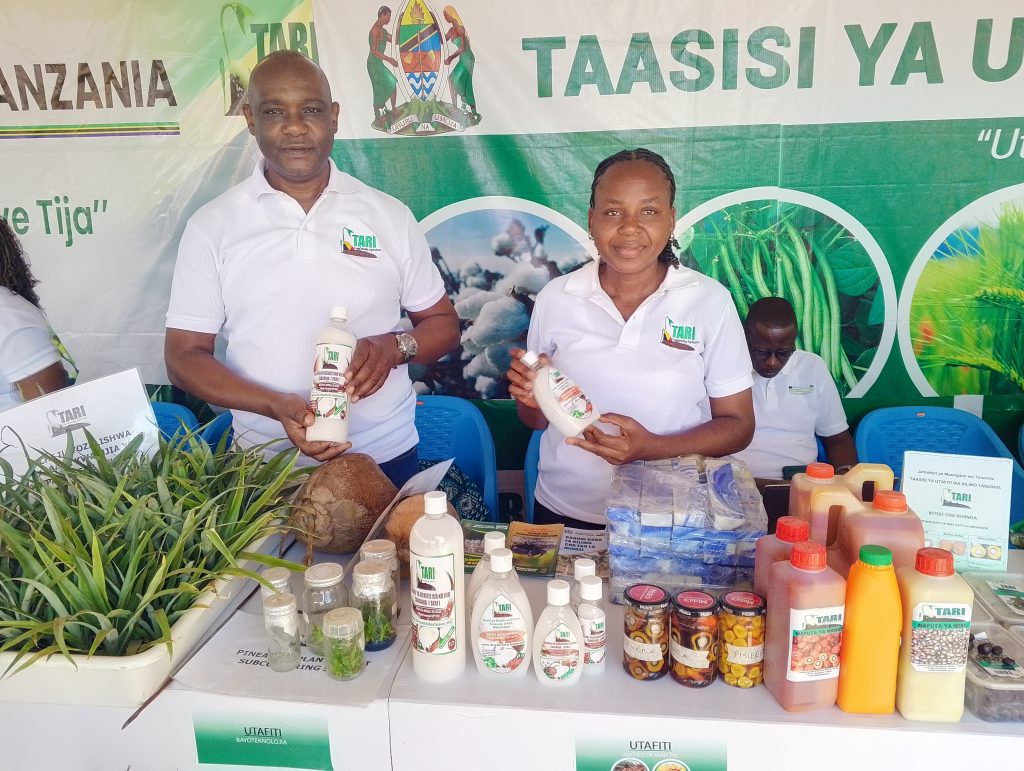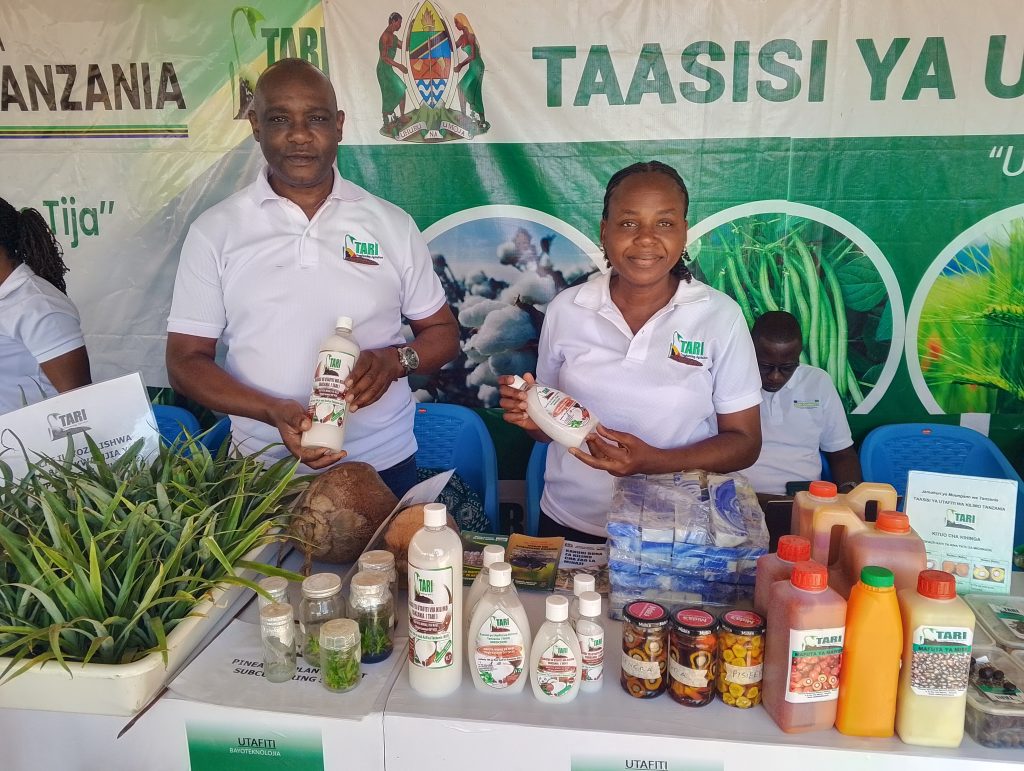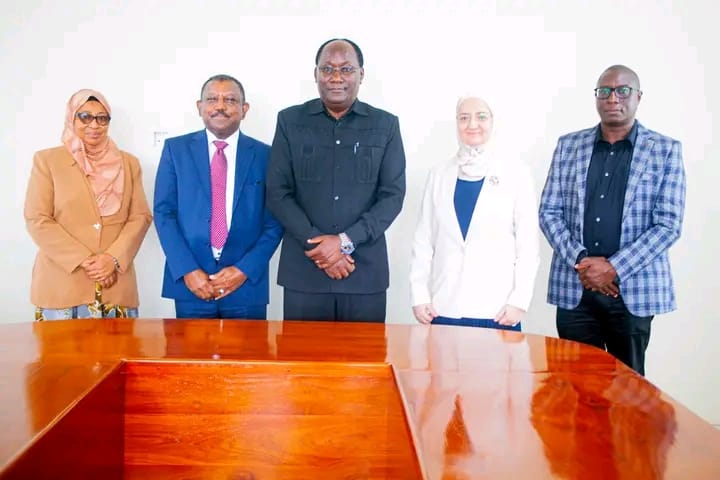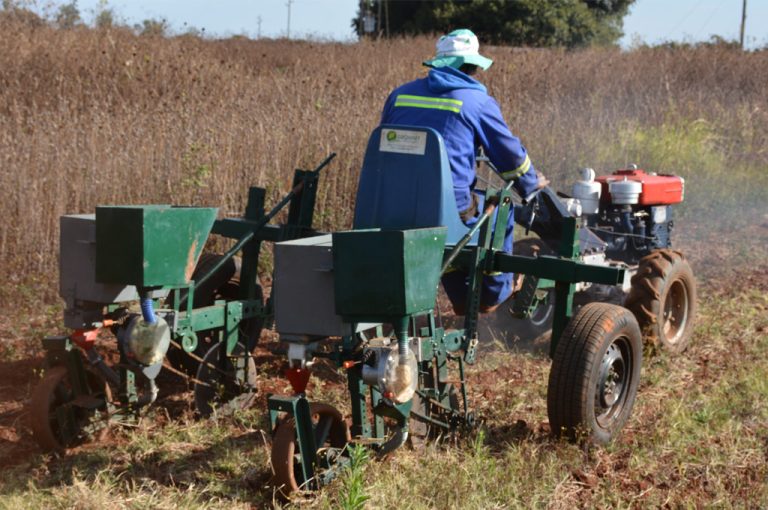
By Senior Reporter, VALENTINE OFORO
THE Tanzania Agricultural Research Institute (TARI) has embarked on a specific project to expand production of coconut in the country, as well as assisting the farmers to attain needed value addition chain for the economic cash crop.
Implementing through the Dar es Salaam – based TARI Mikocheni Center, the initiative target to improve coconut production to at least ten percent by 2030.
Through the project which has been designed to commence in Lindi and Mtwara regions, the vision is to disserminate to the farmers improved coconut seedlings, together with the key technologies for attaining value addition chain.
Giving an exclusive interview to this publication yesterday at the ongoing 31st Tanzania Agricultural International Expo in Dodoma City, Dr Fred Tairo, the center’s Manager, said the center is currently working to finalizing some pending issues to start rolling out improved coconut seedlings to the farmers in the regions in question, the set target being to reach out to over 10,000 farmers.
He added, the center has so far researched and developed at least four best coconut varieties which are resistant to coconut diseases, mostly coconut lethal disease.
“The East African Tall (EAT) varieties which are more productive include Vuo, LBS, Madonga and Buza,” he said.
He said the center was now working to produce a total of 250,000 coconut seedlings to be distributed to farmers in Lindi and Mtwara regions.
“In the program, we’re directing the farmers to uproot the old coconut plants and replace them with the new improved seedlings, but also, we are working to establish new plantations,” he said.

Furthermore, Dr Tairo said in uprooting the old plants, the center is mentoring the farmers how to produce woods from the old coconut plants instead of burning them as they formerly used to do.
“The coconut trees are producing very expensive woods which can later be processed into high- class furnichers to which attracts lucrative prices in the relevant market,” he said.
As part to empower the farmers to attain value addition chain for the crop, he said the experts at the state-owned agricultural research center is disserminating the farmers with cheap technologies to process virgin coconut oil (VCO).
“The target is to ensure that by 2030, all coconut produced by farmers in the country are processed into different prestigious products instead of being marketed while raw,” Dr Tairo said.
For instance, he said as per the current coconut market prices, one raw coconut fruit is sold at 1,500/- , but when processed into virgin coconut oil, one liter fetches at least 50,000/- .
“And one liter of coconut virgin oil is produced by 20 raw coconut fruits, which means through processing the farmers stands economic change to generate a profit of around 30,000/-,” he said.
In more efforts to help farmers attaining value addition for the crop, he said the project also works to empower the sub- sector’s farmers to process strings and pots for growing seedlings.
He added, during 2023/24 financial year, the government has set aside a total of l480m/- to help boosting performance of the economic sub- sector, the amount which is being used to facility a series of strategies, including disserminating the farmers with friendly coconut processing technologies.
Dr Tairo said coconut was flourishing well in several regions across the country, but currently most production based in Tanga, Coastal region, Dar es Salaam, Lindi, Mtwara and Ruvuma.
” The other regions with coconut growing potential where production remain at very low ebb include Morogoro, Mbeya (Kyela), Kigoma and Mwanza,” he said.
Tanzania Agricultural Research Institute -Mikocheni (TARI-Mikocheni) is one of the 17 research centres under TARI.
It was established in March 1996 as a measure to sustain and institutionalize coconut research and development activities conducted by the then National Coconut Development Programme (NCDP). The NCDP was established by the Government of the United Republic of Tanzania in the fiscal year 1979/80 with the aim of promoting coconut production and utilization in the country.
The program covered the whole coastal belt of Tanzania and the Island of Zanzibar.






